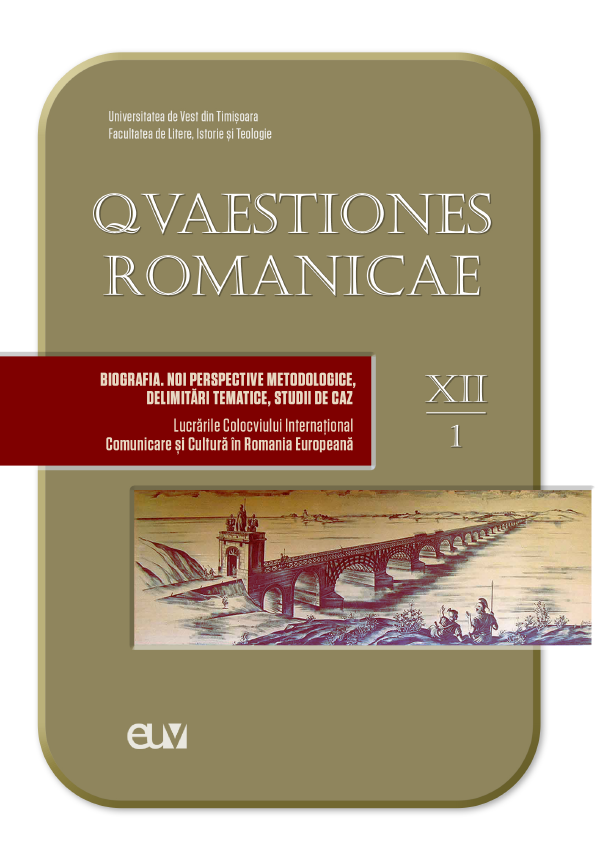“La storia dell’amor di potenza”: questioni teoriche e linquistiche ne L’amante di Cesare di Augusto De Angelis
Abstract: (“The History of the Love of Power”: Theoretical and Linguistic Issues in Caesar's Lover by Augusto De Angelis) The story of Cleopatra written by Augusto De Angelis (1936) allows us to highlight some characteristics of the biographical genre, or biofiction, according to Riccardo Castellana’s definition. Furthermore, if, from the first lines, Caesar’s Lover presents itself as a heterobiofiction, given that the narrator writes in the third person, there are some clues, such as the use of free indirect reveal the internal focus. The narrator intervenes with judgments and comments, even of an ironic tone (“as one of the politicians of the first thousand and twentieth century AD would certainly have said”; “When has it (history] ever been benign towards a beautiful woman?”), which interpret and update historical data, also in line with the vicissitudes that De Angelis encountered during the fascist period. To the factual aspects, evident in the references to Plutarco, Dione Cassio, Appiano of Alessandria, Plinio, are added the fictional ones, attested by the numerous dialogues. The linguistic-expressive choices testify to the relationship between present and past. The personal subject pronouns ‘ella’ and ‘egli’, for example, alternate with the regular forms. We then note some literary terms, such as the noun ‘bisogna’, the prepositions articulated ‘pei, pel, col, coi, and various vowel apocopes. At a syntactic level, the numerous elliptical periods of the verb come to the fore. The text is analyzed according to Castellana’s theses, playing attention to the linguistic-expressive aspect. The personal subject pronouns ella - egli corresposnd to lui - lei; the imperfect without labiodental alternate with regular forms. Numerous elliptical periods of the verb.
Keywords: De Angelis, biofiction, Cleopatra. history, language.
Riassunto: La vicenda di Cleopatra tratteggiata da Augusto De Angelis (1936) consente di evidenziare alcune caratteristiche del genere biografico, o biofiction, secondo la definizione di Riccardo Castellana. Se, inoltre, sin dalle prime righe, L’amante di Cesare si presenta come una eterobiofiction, dato che il narratore scrive in terza persona, alcuni indizi, come l’uso dell’indiretto libero, svelano la focalizzazione interna. Il narratore interviene con giudizi e commenti, anche di tono ironico (“come avrebbe certo detto uno degli uomini politici del primo mille e novecento dopo Cristo”; “Quando mai essa [la Storia] è stata benigna verso una donna bella?”), che interpretano e attualizzano i dati storici, in linea, anche, con le vicissitudini cui De Angelis va incontro durante il periodo fascista. Agli aspetti fattuali, evidenti nei riferimenti a Plutarco, Dione Cassio, Appiano d’Alessandria, Plinio, si aggiungono quelli finzionali, attestati dai numerosi dialoghi. Le scelte linguistico-espressive testimoniano il rapporto fra presente e passato. I pronomi personali soggetto ella, ed egli, per esempio, si alternano con lui e lei; gli imperfetti senza labiodentale avea, volea si alternano con le forme regolari. Notiamo, poi, alcuni termini letterari, come il sostantivo ‘bisogna’, le preposizioni articolate ‘coi’, ‘col’, ‘pel’, ‘pei’ e varie apocopi vocaliche. A livello sintattico, balzano in primo piano i numerosi periodi ellittici del verbo.
Parole-chiave: De Angelis, biofiction, Cleopatra, storia, lingua.
